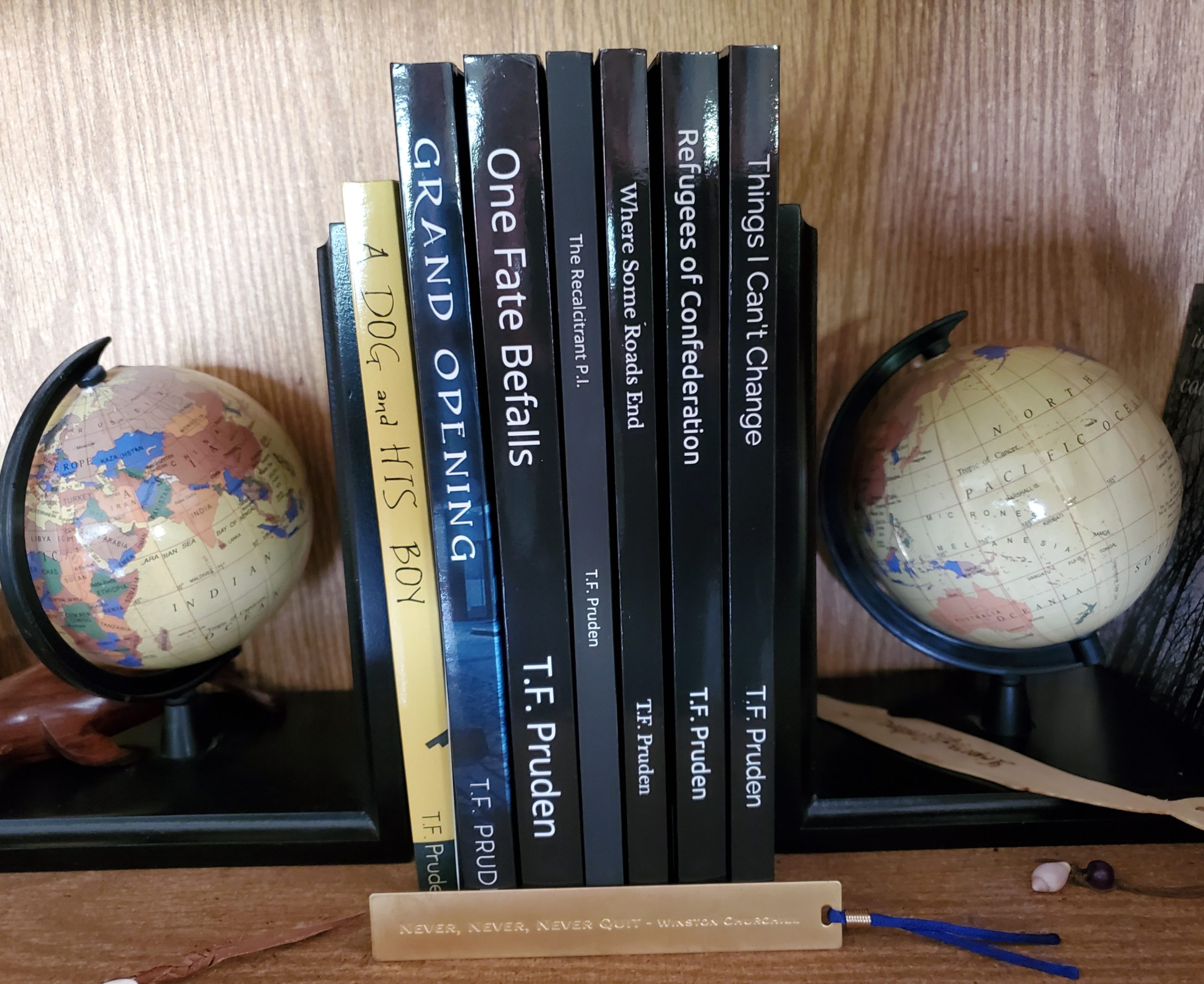Hello and welcome, reader. As always, it’s my pleasure to receive your online attention. For here in these rural parts I call home, the wheel turns, and the hamsters run, much as they do wherever you might find yourself on this luckiest of rocky blue marbles. As nowadays, global trade has turned these postmodern times […]
The unplanned lunch.
- Post author By tfprudenthewriter
- Post date
- Categories In On Writing
- No Comments on The unplanned lunch.
